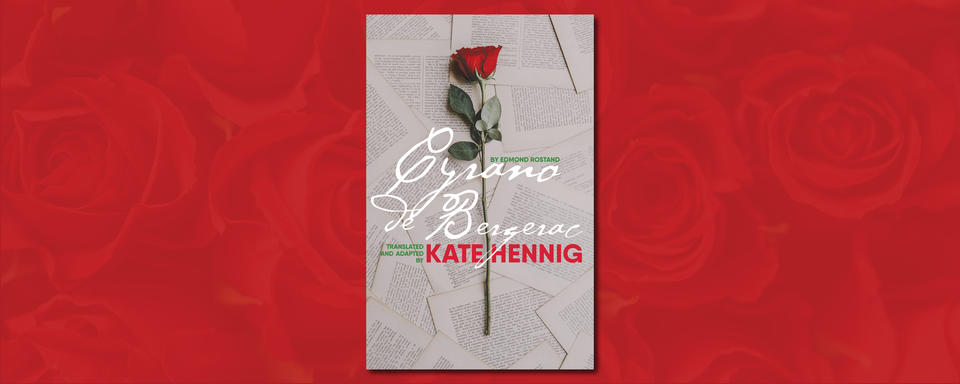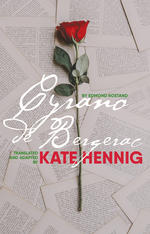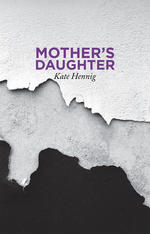
The voice of the drama vs. the voice of the playwright
An interview with Kate Hennig on adapting Cyrano de Bergerac
Kate Hennig has been very busy this year. Her third part to her Queenmaker series, Mother’s Daughter, premiered at the Stratford Festival earlier this summer. Now her adaptation of the classic play Cyrano de Bergerac is about to premiere at the Shaw Festival. While Mother’s Daughter was a continuation of something Kate created (though based on history), Cyrano was an ambitious challenge. Read our interview below to find out how Kate made her own mark on the play about a romantic man with a very large nose.
Cyrano de Bergerac (the play) has been around since the late 1800s. For your adaptation, what did you bring to the original story?
Rostand’s play is about four hours long, has forty speaking parts, and about sixty named characters. My first job was to get the play in under three hours for a cast of fourteen. That was a fun challenge: like a great big puzzle that you know can go together, but, once you’ve found all the flat edge pieces, the real work is putting together the mess in the middle! Long and short, I guess what I brought to the original was my own particular investigative chutzpah.
How come you decided to translate the original French text rather than use an existing one?
I don’t speak French. So, how ridiculous is it of me to translate one of the great French plays without using a direct translation? Oh, that chutzpah again. I thought I would dabble at first, so I started with Act V. The more I delved into figuring out their meaning, the more I realized that each word conveyed an almost entirely personal significance. (We each like particular words, right? I like these words: credulity, ravishing, buttercup. Someone else might like naïveté, exquisite, hellebore. We all have a particular ear for this sort of thing.) I really learned quickly that a good amount of the writing I wanted to do in this play was to choose that meaning—the English equivalent of the French—and not rely on someone else to choose that meaning for me.
This led me to another big decision: to abandon the rhyming verse form. Rostand wrote in iambic hexameter (Alexandrine), and most translations are in iambic pentameter (the best English equivalent). In order to create this rhythm and rhyme you almost always have to shift from the original and choose different words to form a similar message—words that fit into the strict rhythm and rhyme scheme. Personally, I am more interested in the words that Rostand chose than the form those words took, so I have written the play in structured prose. This all may sound like gobbledygook, but I’m a word nerd.
You’ve mentioned you wanted to give Roxane more agency in your adaptation—what did you do to achieve this?
This continues to be a lesson for me. We’re not quite in previews yet, as I write this note, and only recently we cut one of the scenes I had written for Roxane and the Companion. Yes. I wanted Roxane to have more agency, and I think I have given the character a very clear voice. My lesson was—and this was a tough one for me—the voice of the drama is more important than the voice of the playwright, and what I wanted for Roxane wasn’t necessarily what was good for Roxane. Deborah Hay, who is playing Roxane, really struggled and struggled to make the scene work (in the most generous possible way), and I wrote about thirty-two versions of it (not kidding!). It’s not that the scene couldn’t have existed, or couldn’t be acted, it’s that the scene, ultimately, took away from the structure of the drama. So, after giving it the most serious go we could possibly give it… out came the big red pencil. Roxane still has agency, it’s just less verbal.
What do you hope audiences today will take away from the story of Cyrano de Bergerac?
I want a new generation to love Edmond Rostand’s play. This is a beautiful play filled with magnificent characters that wind their way through an incredible love story set in an extremely entertaining and adventurous world. My main goal is to make this great play accessible to all kinds of readers, of listeners, and all levels of the theatregoing public. I want people to see themselves in Cyrano—their heart, their brain, their ability—and to see what a profound and complex task we take on when we choose to love.
Want to read Kate’s adaptation? Order your copy of Cyrano de Bergerac now!




Comments